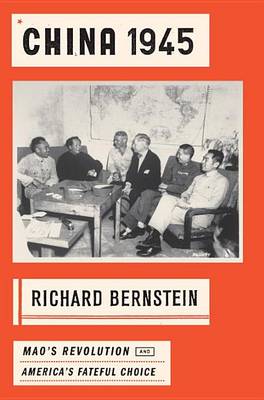Examines the first episode in which American power and good intentions came face-to-face with a powerful Asian revolutionary movement, and challenges familiar assumptions about the origins of modern Sino-American relations. As 1945 opened, America was on surprisingly congenial terms with China's Communist rebels--their soldiers treated their American counterparts as heroes, rescuing airmen shot down over enemy territory. Chinese leaders talked of a future in which American money and technology would help lift China out of poverty. Mao Zedong himself held friendly meetings with U.S. emissaries, vowing to them his intention of establishing an American-style democracy in China. By year's end, however, cordiality had been replaced by chilly hostility and distrust. Chinese Communist soldiers were setting ambushes for American marines in north China; Communist newspapers were portraying the United States as an implacable imperialist enemy; civil war in China was erupting. The pattern was set for a quarter century of almost total Sino-American mistrust, with the devastating wars in Korea and Vietnam among the consequences. Richard Bernstein here tells the incredible story of that year's sea change, brilliantly analyzing its many components, from ferocious infighting among U.S. diplomats, military leaders, and opinion makers to the complex relations between Mao and his patron, Stalin.--From publisher description.
- ISBN10 0307595889
- ISBN13 9780307595881
- Publish Date 4 November 2014 (first published 1 January 2014)
- Publish Status Remaindered
- Publish Country US
- Imprint Knopf Publishing Group
- Format Hardcover
- Pages 445
- Language English
